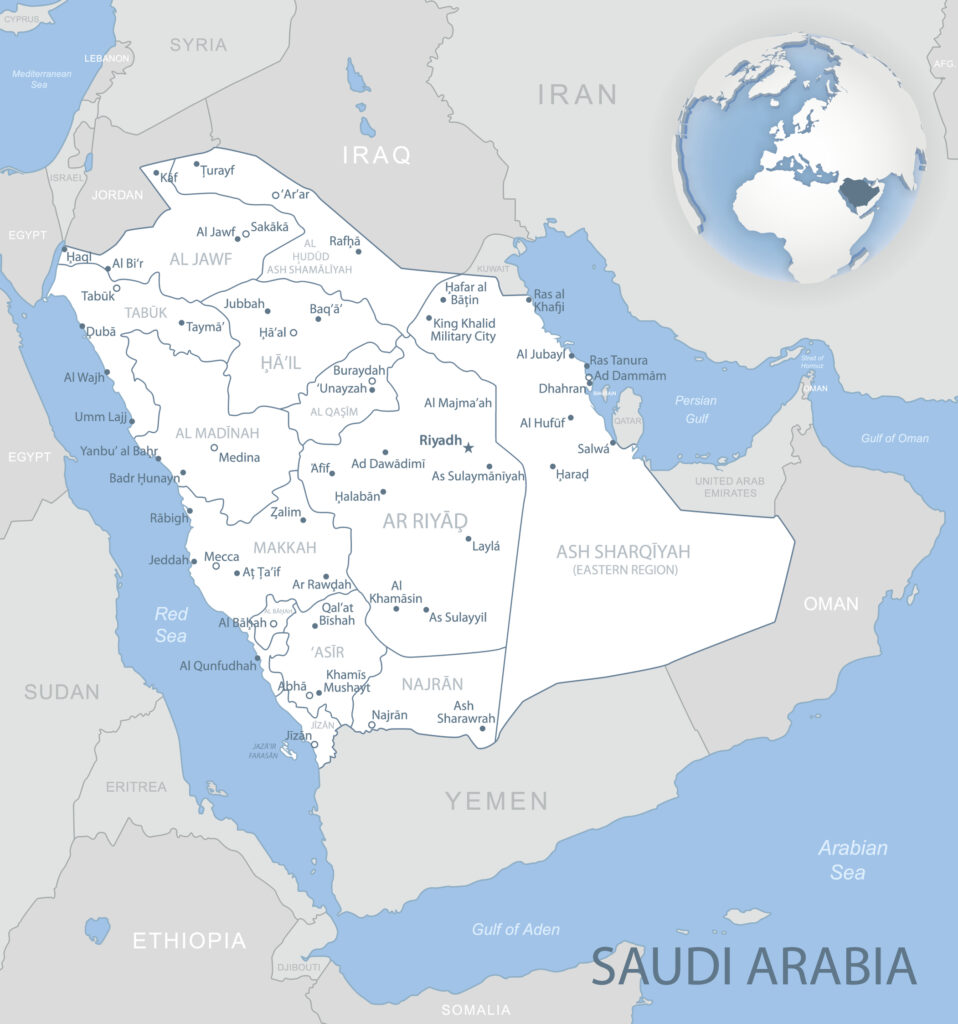Critical Reflections on the New Saudi-Iran Relations
By Khaled A. Beydoun
July/August 2023

The recent wave of optimism surrounding new Saudi-Iran relations demands a critical examination that transcends the surface-level narrative of reconciliation. While it is tempting to view thawing tensions as a positive development for regional stability, a closer look reveals underlying motives and complexities that warrant skepticism. This commentary delves into the nuanced realities of the Saudi-Iran relations, shedding light on the potential pitfalls and challenges that may hinder true progress in the region – and that may reveal that these promising relations are more mirage than mandate.
The notion of a genuine reconciliation between Saudi Arabia and Iran appears elusive when one considers the history of animosity, sectarian tensions, and competing regional ambitions that have shaped their relationship. Indeed, the bloody war in Yemen stands as a stark case study of the rivalry between the two regional powers, which decimated a people – the poorest nation in the region in fact — interlocked between. The sudden shift in discourse could be seen as a strategic maneuver rather than a sincere commitment to lasting peace. Both nations may be engaging in a superficial rapprochement to gain leverage in the international arena, rather than addressing the root causes of their conflicts and ideological differences. While this offers common terrain to commence sustainable relations, it can also be precarious ground.
Behind the veneer of diplomatic gestures lies a geopolitical power play. Saudi Arabia and Iran have long vied for influence in the Middle East and the Arab world, with each seeking to establish its hegemony over the region along sectarian and political lines. The recent détente may be a calculated move to gain an upper hand in this ongoing struggle for dominance. By presenting a façade of unity, both nations may seek to weaken their regional rivals and secure their own geopolitical interests, rather than working towards genuine cooperation and stability.
Religious sectarianism has played a significant role in fueling tensions between Saudi Arabia and Iran. Both have exploited the Sunni and Shia schism to advance their respective agendas. The current rapprochement does not address the deep-seated ideological divisions that underpin the Saudi-Iran conflicts. Without a genuine effort to bridge these differences and promote religious tolerance, any semblance of reconciliation will remain superficial and susceptible to renewed sectarian strife.
Saudi Arabia and Iran have been embroiled in proxy conflicts across the Middle East for years, with devastating consequences for the region’s stability. While the new relations may suggest a willingness to de-escalate tensions, the reality on the ground tells a different story. Both nations continue to support rival factions in conflicts such as Yemen, Syria, and Iraq, exacerbating the very divisions they claim to be addressing. Until there is a genuine commitment to end proxy warfare and support inclusive political solutions, the prospects for lasting peace will remain bleak. While the commitment to end the war in Yemen is a promising step, expanding the cessation of proxy wars beyond Yemen will evidence the depth and sustainability of these new relations.
Beyond politics and geopolitics, the Saudi-Iran relations cannot be divorced from their abysmal human rights records. Saudi Arabia’s record of suppressing dissent, detaining activists, and violating human rights is well-documented. Iran, too, has faced criticism for its crackdown on political dissidents and curtailment of civil liberties. True progress in the region cannot be achieved without addressing these human rights concerns and holding both nations accountable for their actions. Without a commitment to respect human rights, any claims of reconciliation may prove narrow.
While the idea of improved Saudi-Iran relations may be seductive, particularly during the decline of the War on Terror and the rise of regional pride, a critical examination reveals a more complex and uncertain reality. Superficial gestures, geopolitical calculations, sectarian divisions, proxy conflicts, and human rights abuses continue to overshadow any semblance of genuine progress. Only through a comprehensive and sincere commitment to addressing these underlying issues can Saudi Arabia and Iran truly contribute to regional stability. Until then, we must approach the narrative of a new era in their relations with caution and skepticism, lest we fall prey to a mirage of peace in the Middle East.
Khaled A. Beydoun is a professor at the Wayne State School of Law, and Scholar-in-Residence at the Initiative for a Representative First Amendment at Harvard University. He is a native of Detroit, and author of the critically acclaimed American Islamophobia: Understanding the Roots and Rise of Fear (2019).
Tell us what you thought by joining our Facebook community. You can also send comments and story pitches to horizons@isna.net. Islamic Horizons does not publish unsolicited material.
